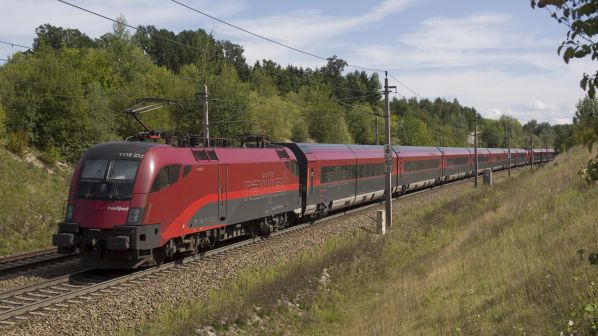ÖBB says that trains have been operating at around 10% of usual loadings as people stay at home while revenue was even less due to compensation payments for cancelled trains. ÖBB says that it will retain all staff, but several thousand employees would switch to part-time employment with the government subsidising part of the salary gap.
On March 23 the state-owned operator introduced a Sunday timetable for regional services with some additional trains operating in the morning. The frequency of ÖBB Railjet services from Vienna to Salzburg and Innsbruck has also been reduced along with services from Vienna to Villach.
ÖBB suspended Nightjet services to Milan and Venice on March 8, which was followed by all services to Italy a few days later. ÖBB has since suspended the following cross-border trains:
- Italy: Steinach - Brenner; Arnoldstein - Tarvisio; and Sillian - San Candido
- Slovenia: Rosenbach - Jesenice; and Spilefeld-Strass - Sentilj
- Slovakia: Kittsee - Petrzalka; and Marchegg - Devinska Nova Ves
- Czech Republic: Bernhardsthal - Breclav; Retz - Znojmo; Gmünd - Ceske Velenice; and Summerau - Horni Dvoriste
- Switzerland: Lauterach - St Margrethen; and Feldkirch - Buchs
- Germany: Scharnitz - Mittenwald; Kufstein - Kiefersfelden; Garmisch-Partenkirchen - Reutte - Pfronten-Stainach. A limited service is in operation from Salzburg to Freilassing and from Bregenz to Lindau
- Hungary: Jennersdorf - Szentgotthard; some Railjet and EC services are suspended between Nickelsdorf and Hegyeshalom.
Other operators
Czech operator RegioJet has also suspended its Vienna - Prague service while open-access operator Westbahn cut the frequency of its Vienna - Salzburg service to two-hourly on March 25. Most regional train operators have also reverted to Saturday or Sunday timetables.
A restriction to just a single driver in the cab has led ÖBB to suspend practical driver training activities. The training centre at Wörth has been shut down with trainee drivers switching to e-learning at home.
Rail Cargo Austria freight services have also been badly affected with a 30% drop in traffic. Traffic in Italy has fallen by 65% and maritime container traffic has dropped by 50%. With car manufacturers stopping or reducing production, RCA also expects falls in automotive and steel traffic.

